Content from the Brookings Doha Center is now archived. In September 2021, after 14 years of impactful partnership, Brookings and the Brookings Doha Center announced that they were ending their affiliation. The Brookings Doha Center is now the Middle East Council on Global Affairs, a separate public policy institution based in Qatar.
The spread of COVID-19 in the Middle East and North Africa (MENA) region has intensified many challenges for these countries. The pandemic not only reveals structural weaknesses in the health care sector, but it also highlights problems of ineffective governance, low levels of human security, and precarious economic models. This public health crisis, coupled with the oil price collapse, has further exposed the fragility of rentier states, whose budgets depend almost solely on oil revenues. Although some rentier states have woken up to the need to confront these challenges, others have instead decided to use the crisis to stifle also ongoing popular protest movements. Among the latter is Algeria, which is using the pandemic to finish-off the peaceful protest movement known as Hirak.
Beginning in February 2019, the Hirak movement drew millions into the streets every week for over a year. The demonstrators called for a new political system and an end to President Abdelaziz Bouteflika’s 20 years of autocratic rule. Under enormous pressure from mass demonstrations across the country, the military, the backbone of the system, forced Bouteflika to resign on April 2, 2019, thus beginning a tenuous transition period. The protests did not stop, however, because the struggle for democratic rule had only just begun.
Since Bouteflika’s resignation, the military-backed transitional government has sought to reestablish the appearance of civilian rule. The controversial election on December 12, 2019 of Abdelmadjid Tebboune, who had served as both minister and prime minister under Bouteflika, exacerbated the political crisis and further weakened the new regime’s legitimacy. The Hirak movement continued to peacefully protest what many considered to have been an illegitimate election.
Since the Hirak movement suspended protests due to the pandemic, it has found other ways to continue expressing dissent, such as through social media and new outlets. One example is Radio Corona international, which broadcasts a biweekly show that evaluates and critiques the political system. However, although Tebboune had promised to implement reforms and take part in dialogue with Hirak, the regime has been using the COVID-19 crisis to further clamp down on political dissent and to target the movement.
COVID-19 and the specter of renewed authoritarianism
Algeria’s first case of COVID-19 was detected on February 25, 2020. As of May 9, there were 5,369 confirmed infections, 488 deaths, and 2,467 recoveries. In many ways, the pandemic was a boon for the regime. It implemented similar measures taken by governments all over the world to battle the virus, such as banning public gatherings and instituting curfews to slow down its spread, but it also exploited the situation to adopt the revised penal code that includes “criminalizing fake news” for the sake of “state security.” Activists and rights groups denounced the law, which they believe intend to target the Hirak movement. Furthermore, while Tebboune released 5,037 prisoners in response to concerns about the spread of the virus in prisons, he chose to not free political activists or prisoners of conscience.
Human Rights Watch recently documented the ways in which Algeria has used the COVID-19 pandemic to crack down on Hirak. Since the start of the pandemic, courts have condemned well-known members of Hirak, such as Karim Tabbou and Abdelouahb Farsaoui, to prison sentences on charges of “harming national unity.” Journalist Khaled Drareni was also jailed on March 27. Some websites have been blocked, and youth have been detained for peaceful online activism. Undoubtedly, authorities are attempting to silence dissenting voices and finish off Hirak. They are doing this while also insisting that “freedom of expression and a democratic climate” exist in Algeria.
Possibly, this conflicting attitude toward the Hirak movement derives from the current power struggle, in which reformist factions are attempting to eliminate the remnants of the Bouteflika-led regime. It remains to be seen whether these divisions at the top reflect a genuine attempt at reform or just another battle for power, a “guerre de clans.” This perhaps explains Tebboune’s contradictory statements about Hirak. Afterall, Tebboune had promised to work with, in his words, the “blessed Hirak” and to take part in dialogue. He stated that he is “personally committed to achieving all the demands of the Hirak,” affirming that the protest movement represents a “foundation for democracy.” He even designated February 22, the anniversary of Hirak, as a “national day of brotherhood.”
Chronic public health challenges
This protracted political crisis and acute public health threat are unfolding in a system marked by chronic structural challenges. The 2019 Global Health Security Index ranks Algeria’s health security 173rd out of 195 countries. The report highlights that Algeria’s ability to respond to a pandemic is one of the worst in the world, citing problems in public communication, transparency, medical equipment, and infection control practices.
There are significant barriers to accessing high-quality, affordable health care in Algeria. A significant quality gap exists between private and public hospitals. There are also regional disparities in care and access; the highlands and the south, for instance, are particularly lacking in access to care and equipment, as reported by the head of the Algerian Red Crescent. The Bouteflika regime neglected the health sector. Indeed, it failed to build modern hospitals and implement necessary reforms. A 2014 project to build five university hospitals was discarded, leaving the health sector in a pitiful shape despite repeated warnings from the medical community.
The current pandemic has highlighted the blatant deficiency of equipment to protect caregivers, as well as the lack of human capital in the health care sector. Many Algerian doctors, partly due to a chronically inefficient health care system, decide to migrate and work in Europe or Canada. While the new government has admitted that Algeria is facing a “health crisis” and that the health system needs a “total overhaul,” the authorities’ track record on reforms leaves little room for optimism.
A looming economic crisis
It is no secret that Algeria faces an impending economic crisis. Hydrocarbon-dependent and crippled by a dysfunctional political system, the country has been unable to successfully implement the necessary reforms to diversify the economy, strengthen the private sector, and battle high unemployment rates, especially among youth whose situation has worsened under Covid-19. Budgetary pressures on the government were already intensifying, even before the recent collapse in oil prices, during which Brent crude fell below $20 a barrel. The price drop was a result of COVID-19 killing global demand coupled with oversupply resulting from an OPEC+ feud between Saudi Arabia and Russia.
The fiscal breakeven price for Algeria this year is $157 a barrel. If the fiscal breakeven price – that is, the oil price required to balance the public budget – is much higher than the price of oil, the country will face a significant budget deficit. This means that Algeria’s foreign reserves will continue to decline and that it will be forced to cut public spending. Already, the government announced a 50 percent cut in public spending for 2020, and its foreign exchange reserves are declining. They are expected to fall from $56 billion to $44 billion by the end of 2020— they totaled $200 billion in 2014. Thus, financing state subsidies and services will be severely limited in Algeria. In order to make up for the impacts of the oil price collapse, the government is reducing imports and making further budgetary cuts, which will, as reported by intelligence agencies, provoke further major protests as socioeconomic conditions deteriorate.
It is true that oil price collapses in the past have helped spur reform efforts. However, many of the initiatives taken in the name of reform, such as the botched privatization policies implemented since the 1980s, have only served to increase corruption and to cultivate high levels of crony capitalism among the country’s elite. Tebboune has pledged to move away from Algeria’s reliance on oil and to develop agriculture and exploit untapped resources, such as uranium, gold, zinc, iron, and phosphates. He claims that the country is ready to confront the challenge of the drop in oil prices and its impact without resorting to loans from international financial institutions, which, he said, would curtail Algeria’s independent foreign policy.
Any room for optimism?
Although we paint a gloomy picture, there is room for optimism. The coronavirus pandemic is creating a sense of urgency to address many of the country’s socioeconomic woes. A lack of medical equipment globally has led many countries, including Algeria, to launch special campaigns to manufacture essential equipment, such as masks and ventilators. This is something that could help Algeria to promote industrial manufacturing and to become a manufacturing hub in North Africa.
As they often do when faced with great adversity, Algerians, and Hirak, have shown an incredible sense of civic responsibility and social solidarity. Whether the government will capitalize on this solidarity to initiate genuine dialogue and significant reforms remains to be seen. Algeria still boasts important financial reserves and the price of oil might rise to $43 a barrel by the end of 2020. An oil price rise could offer some breathing space; however, it could also entice the regime to once again rely on oil revenues and abandon reforms like it did in the past.
While the pandemic has given the government some respite in the face of powerful social opposition, the post-COVID-19 period will be a litmus test for its capacity to drive the country in the direction of genuine reforms. The government should implement Hirak’s key demands, including the release of prisoners, to cultivate some level of trust to commence a political dialogue. Having broken the wall of fear in 2019, Algerians will continue to protest and hold the government accountable.
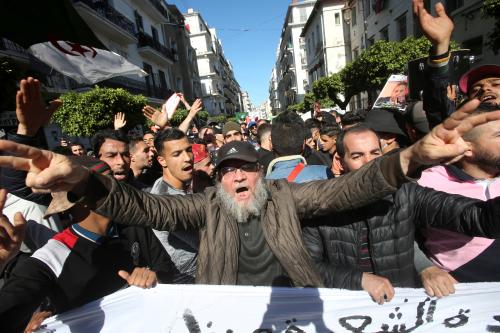
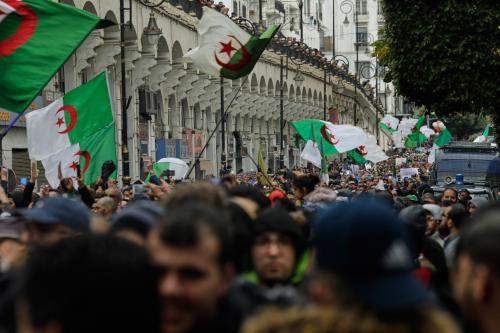
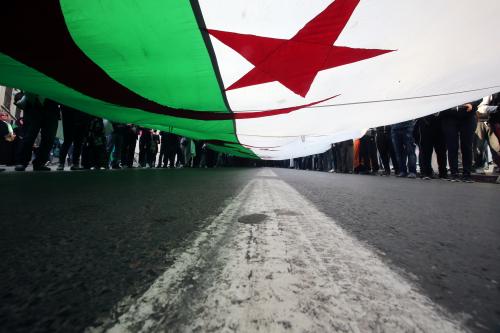
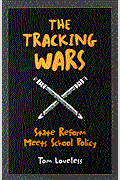
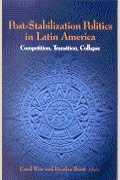
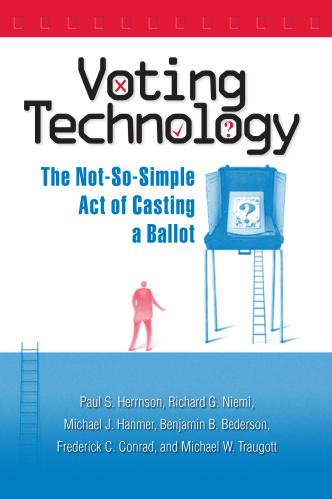
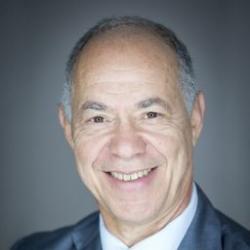
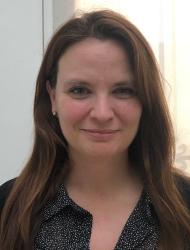
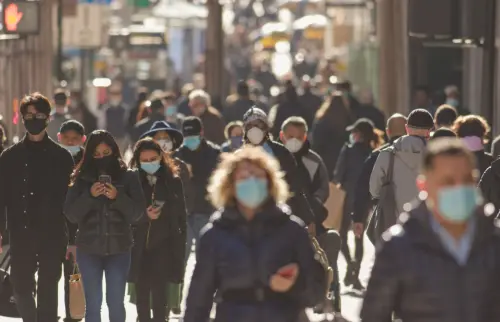
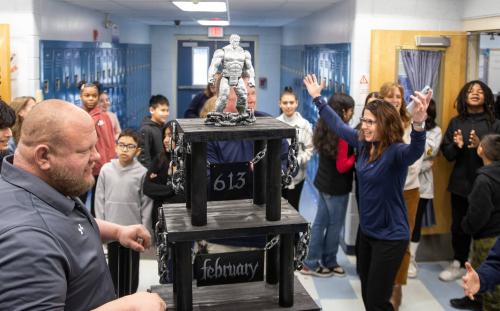
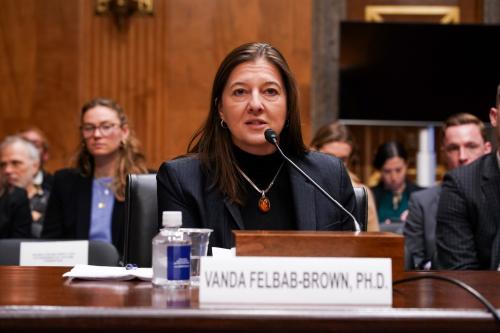
Commentary
Op-edWill COVID-19 reshape Algeria’s political system?
May 10, 2020